It’s mulberry season, which means while walking through my neighbourhood I can snack, picking food right off the trees growing behind fences or on people’s front lawns whenever I walk by a berry-stained sidewalk.
There’s something therapeutic about entering into the flow state of berry-eating from a tree (or a bush? they’re massive bushes. The act of eating becomes a ritual. It demands presence and attention. It becomes like a game, the objective is looking for rich colour, ripeness, size, and strategizing how to access the delicious, prized morsel you’ve laid your eyes on, then savouring the experience of having attained it, before beginning the process again.
It’s impossible to binge-eat this way.
I remember at my friend’s cottage last Septemeber it was blueberry season and we spent the weekend casually hanging out in the middle of blueberry patches. I would find an abundant bush, settle down in the midst of it and graze. I must have eaten 5 cups of blueberries each day and yet it took me the entire day to do it.
What better way to spend a day?
The best part of it was: I met my food.
I was listening to Paul Saladino of the Fundamental Health Podcast interview Daniel Vitalis from the Rewilding Podcast. The subject came up about foraging, and hunting and meeting your food.
“Some people have never seen a bass,” Daniel Vitalis commented.
“Maybe not in the wild, maybe not in a zoo. They don’t know how big it is, what colour it is, what kind of lakes it lives in, what it looks like.
“And, more importantly, even if someone fishes for bass or knows what they look like, if they eat bass in a restaurant or from a frozen filet they’ve bought at the grocery store, they most likely haven’t met that bass.
“There’s a massive disconnect in our society between us and the food we eat.”
In almost every other culture we would have shared an intimate relationship with food.
When I was eating blueberries I took the time to settle down in a patch of bushes and linger. The act of eating was immersed in a ritualistic past-time. I was connecting with the specific plant whose food I was borrowing. I was visiting her home–her environment.
When you fish for bass, or hunt a deer, you enter that animal’s setting. You meet it alive. You witness it living. You witness it dying.
The animal’s fate intertwines with yours.
Your survival and his become like a seesaw. Yesterday it was your turn. Today it’s mine.
I suppose the fish filet’s fate is also intertwined with yours: he may have been destined to end up in the freezer section of the local Costco, but somehow… it seems radically different, largely impersonal. Colder.
This is why we obsess over food sometimes: where was the bass made? Was it caught or farmed? Is it organic? Where was it processed? Eating animals is wrong—I’m going to go vegan. And so on.
I believe that this neurosis becomes our remedy for disconnect, for the disembodiment we experience. Eating becomes an intellectual task. We need to read labels, visit websites, and do research, rather than just experiencing our food first in its living form, before engaging in the eating of it.
Hunter gatherers don’t read labels. They don’t diet.
The Hadza from Tanzania don’t have food rules, restrictions ,or even mental, nutritional concepts about food. That’s a Western thing.
The Hadza, like many other cultures more connected to their food sources, simply possess the raw biological desire to eat whatever and however much they like that they can get, whenever they can get it. They are guided by taste and hunger.
Their lives revolve around hunting and gathering food. They simply immerse themselves in their food environments and eat.
We are also immersed in a food environment: the packaged, fried, doctored foodstuffs packed into grocery stores, fast food restaurants, gas stations, and convenience stores. These foods connect with our hunger cues and communicate with our tastebuds but offer none of the impact of “real” food on our physiology. They don’t nourish us.
They don’t connect us to the natural world. They don’t encourage ritualistic eating. What happened to that wheat sheaf or corn blade for it to become refined flour or hydrogenated oil? Could I participate in the making of it? Or do I lack the chemicals and technology to process this food to make these potato chips, bread, or cookies?
Our food environment encourages our disconnect and this encourages our neurosis around food and nutrition. In order to thrive in this environment we need to think about food. We need to read labels and make choices and abstain from certain foods, and make an effort to change our environment so that it becomes one more conducive to human nourishment.
We need to refuse foods served to us at events, or buy separate groceries, and make separate meals for our partners or children.
We create a food “island” for ourselves, in the midst of our community.
And this becomes impossible.
You are only as healthy as the group and environment you find yourself in.
So what can we do? Perhaps we can start with community. Where do the healthy people shop? Where do you feel most connected to your food? Is it in your garden? Is it visiting a farm? Hunting or buying meat from a hunter, or a farm? Can you meet your meat before you buy it? Can you develop a relationship with those who grow or process your food?
Perhaps it means more at-home food preparation. Visiting more farmer’s markets. Talking with the people selling you your eggs. Perhaps it means developing a connection with a local farm where you source your food. Perhaps it means you pick your apples in season, or you grow your own herbs. Maybe you bake bread with your children, or can your own tomatoes.
Maybe you develop your own food and eating rituals and you practice them as a family or as a community.
Maybe you ask some questions about your food–what does this bass look like? How did this cow live?
Food has always been so central to human culture.
When we connect with the rituals of picking, hunting, growing, processing, and consuming our food, we learn what it is to be truly human.
When we meet our food, we meet ourselves.

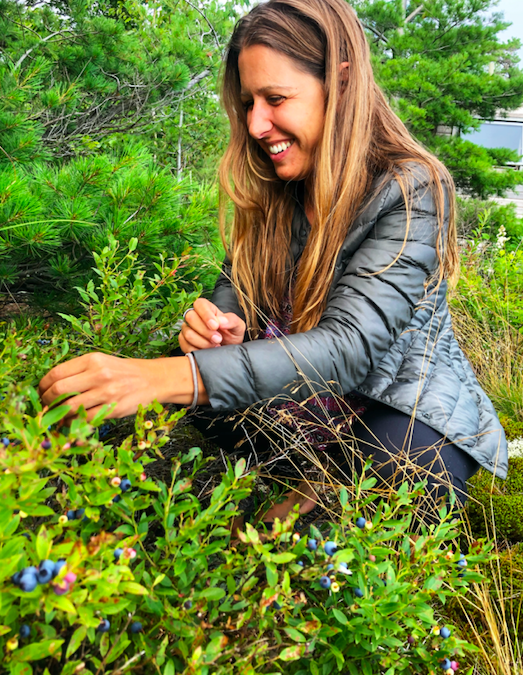
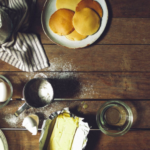

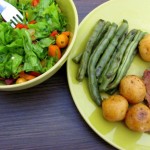

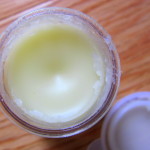
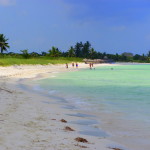
Been reading your posts. Very good. Congratulations.